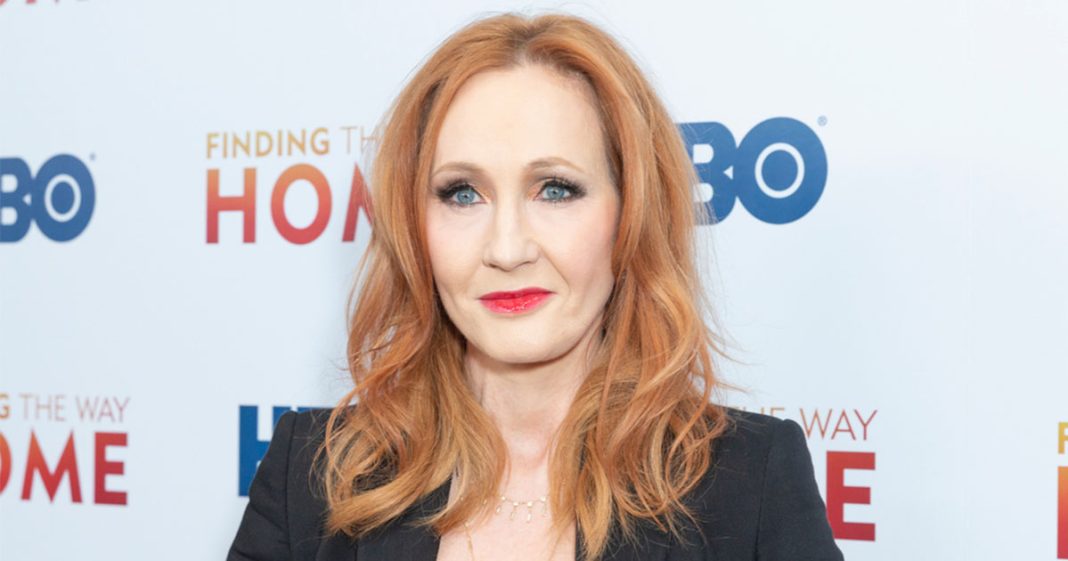J.K. Rowling’s Controversial Stance on Trans Rights
J.K. Rowling, the renowned author best known for her Harry Potter series, has become a polarizing figure due to her outspoken views on transgender issues, particularly in the United Kingdom. Over the past few years, she has increasingly used her platform to advocate against what she perceives as threats to women’s rights posed by the recognition and rights of transgender individuals. This article explores the dynamics of Rowling’s activism, her public statements, and the broader implications of her views on trans rights.
Rowling’s Public Statements and Activism
Rowling’s journey into the realm of trans rights activism gained momentum when she began expressing her concerns on social media. Her statements often emphasize a belief that trans women should not be classified as women in the same context as those assigned female at birth. She has articulated that policies that allow for such classifications undermine the rights of biological women, a stance that has drawn both support and vehement criticism. For instance, in June 2020, she posted a Twitter thread that included her thoughts on a number of issues related to gender identity, directly challenging the idea of self-identification for transgender individuals. Her use of language has become a focal point for many of her critics, who argue that her choice of words perpetuates harmful stereotypes and stigmas surrounding transgender identities.
The Impact of Her Statements
In one of her most notable controversies, Rowling publicly targeted Olympic boxer Imane Khelif, whom she referred to as male. This resulted in Khelif filing a lawsuit for cyber harassment, naming Rowling as one of the defendants. This incident highlights the tension between free expression and the potential harm that public figures can inflict through their platforms. Khelif’s case is emblematic of how Rowling’s statements can lead to real-world consequences for individuals who are part of the transgender community. Additionally, Rowling’s remarks have sparked a wider backlash against her from the LGBTQ+ community and allies, resulting in calls for boycotts of her works and heated debates about the responsibilities of public figures in fostering a more inclusive society.
Responses from the Harry Potter Cast
The original cast of the Harry Potter films, including well-known actors such as Daniel Radcliffe, Emma Watson, and Rupert Grint, have publicly dissociated themselves from Rowling’s views. Their responses reflect a growing awareness of the necessity for inclusivity and support for trans rights. For example, Radcliffe, in a statement for the Trevor Project, emphasized that “transgender women are women” and underscored the importance of supporting transgender individuals in their right to exist and be recognized as such. These actors have made statements expressing their commitment to advocacy for the transgender community, which starkly contrasts with Rowling’s perspectives. This disassociation has not only impacted their relationships with Rowling but has also transformed the public narrative surrounding the beloved franchise, which many fans now view through a lens of social justice.
Establishment of the J.K. Rowling Women’s Fund
Rowling has recently announced the creation of the J.K. Rowling Women’s Fund (JKRWF), aimed at providing financial support for legal battles to maintain what she describes as women’s sex-based rights. According to Rowling, the fund seeks to assist individuals and organizations that challenge policies perceived to infringe on these rights in various spheres, including the workplace and public life. This initiative is seen as a significant step in her ongoing campaign against trans-inclusive policies, as she plans to channel her royalties and other earnings to finance this cause. The establishment of the fund has drawn both support from like-minded individuals and organizations and sharp criticism from activists who view it as a direct affront to the rights and identities of transgender individuals. Critics argue that her funding efforts could undermine progress towards equality and inclusivity, further polarizing an already contentious debate.
Public Reactions and Broader Implications
Rowling’s firm stance has not gone unnoticed, and it has sparked a wide array of reactions from the public. Supporters of her views often laud her for her bravery in speaking out against what they perceive as the erosion of women’s rights. Conversely, critics argue that her actions contribute to a culture of transphobia and discrimination. Notably, organizations like For Women Scotland, which advocate for similar views, have received significant financial backing from Rowling, further solidifying her role as a major funder of anti-trans activism. The polarized responses to her actions illustrate a broader societal divide regarding gender identity, with debates becoming increasingly hostile and emotionally charged. This ongoing discourse not only impacts individuals within the trans community but also influences policies that govern healthcare, education, and rights protections.
The Evolution of the Debate on Trans Rights
The discourse surrounding trans rights has evolved dramatically over the past few years, with societal attitudes shifting towards greater acceptance and understanding of gender diversity. However, Rowling’s outspoken stance represents a faction that feels threatened by these changes, fearing that the recognition of trans rights might undermine the progress made for women’s rights. This complex debate raises crucial questions about identity, rights, and the intersectionality of gender issues. Many advocates argue for a more nuanced approach that seeks to address the rights of all individuals, recognizing that rights are not a zero-sum game. As the public grapples with these challenging issues, the discourse surrounding trans rights continues to grow in complexity, demanding ongoing dialogue and understanding.
Conclusion: A Divided Public Sphere
As J.K. Rowling continues to navigate her controversial position on transgender rights, the conversation surrounding this issue remains highly charged and divisive. The implications of her activism extend beyond personal beliefs, influencing public discourse and policy debates in significant ways. Whether one agrees or disagrees with her perspective, it is clear that Rowling has cemented her role as a key figure in the ongoing struggle over gender rights, prompting both support and opposition in equal measure. Ultimately, the conversation around trans rights will continue to evolve, shaped by voices like Rowling’s and the myriad of responses they elicit. As society continues to strive for greater inclusivity, the intricate balance between different rights will likely remain a contentious and essential topic in contemporary dialogue.

















